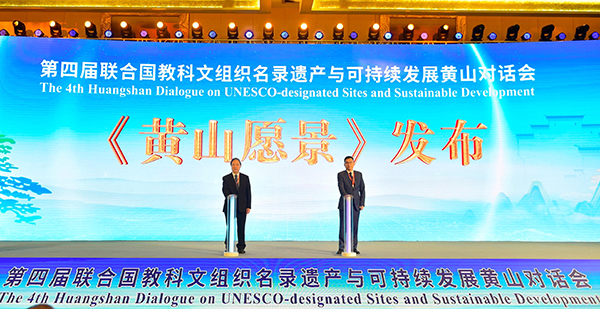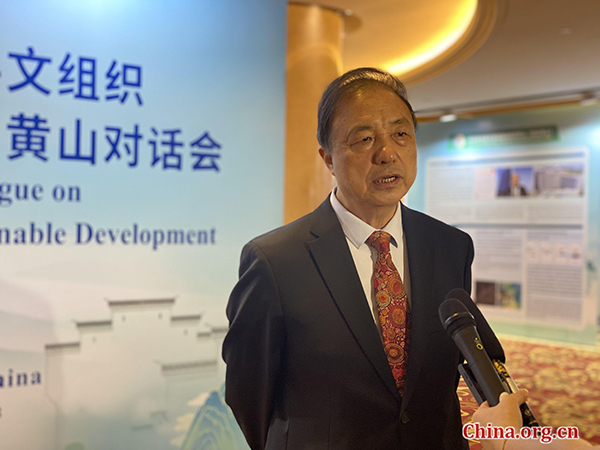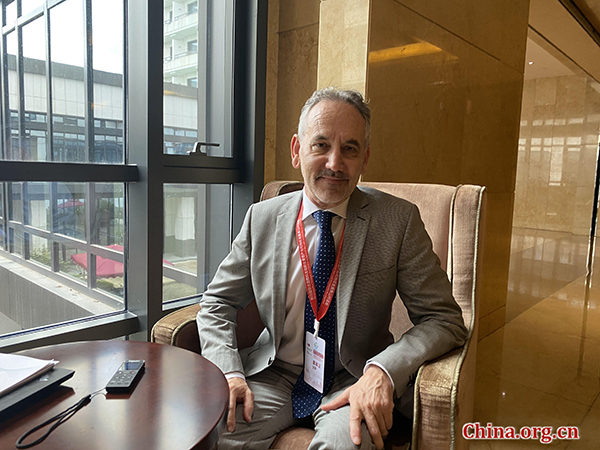
News
Huangshan Dialogue Ends, Calls for Tech-enhanced Heritage Protection
The 4th Huangshan Dialogue on UNESCO-designated Sites and Sustainable Development concluded on Friday in Huangshan city, located in eastern China's Anhui province. The Huangshan Vision, adopted at the conclusion of the dialogue, called for enhanced heritage protection cooperation.

The vision emphasizes the potential role of space-, air-, and ground-based remote sensing technologies, along with other digital applications, in the monitoring and conservation of UNESCO-designated sites.
It urges international organizations and concerned countries to fully utilize digital technologies. This would strengthen the collaborative conservation and management of UNESCO-designated sites and promote collaborative efforts toward the U.N.'s Sustainable Development Goals.
The International Centre on Space Technologies for Natural and Cultural Heritage (HIST), under the auspices of UNESCO, has hosted the Huangshan Dialogue for four consecutive sessions. HIST Director Guo Huadong, who is also an academician at the Chinese Academy of Sciences, said the center has long been dedicated to such work for UNESCO and its member countries.

According to Guo, HIST has collaborated with over 20 countries, including Cambodia, Greece and the Solomon Islands, to undertake more than 70 projects. This collaboration has filled numerous gaps in the application of space technologies for conserving UNESCO-designated sites. He added that a comprehensive heritage governance system had been established, covering identification, nomination, monitoring, conservation, evaluation, management, planning, archiving and promotion.
Furthermore, HIST has aided heritage sites in developing countries to enhance capacity building. They have provided training to site managers and researchers and have advanced the use of space technologies in countries and regions along the Belt and Road, he noted.
Peter Shadie, former director of the IUCN World Heritage Programme and a visiting professor at HIST, praised China's contributions to natural heritage protection. He noted that he has been visiting China for nearly 25 years since 2000 and witnessed the country's substantial advancements in protecting natural World Heritage Sites. China's progress from having "very few on the list" to having "a long and growing list of wonderful heritage sites" is "very impressive," he said.

"China has embraced the World Heritage Convention more than almost any other country in the world, and tried to optimize the benefits that can flow from creating protected heritage sites," he added.
Shadie, who previously worked with the International Union for the Conservation of Nature (IUCN) — the advisory body to the World Heritage Convention on natural sites — said that nominations from China are "really top-class." These nominations include all essential characteristics of outstanding global value and feature properly delineated boundaries and protective zones around the properties.
While setting a good example in terms of understanding the process of designing high-quality properties, Shadie stated that China could also learn from other countries, such as the United States, Canada, and Australia, about how to better connect individual heritage sites and how to build a stronger sense of community engagement with these sites.
A parallel session was held at this year's Huangshan Dialogue to introduce the nomination procedures for UNESCO-designated sites. It invited managers and researchers of such sites to share their successful experiences. The session thus created a communication platform for these individuals and potential candidate sites nationwide.



